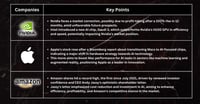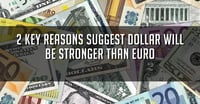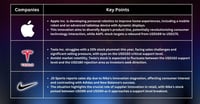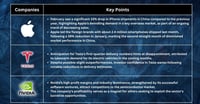Reserve Bank of New Zealand (RBNZ) took the market by surprise last week; slashing interest rates by 25 basis points to a record low of 2.25%. After the financial crisis in 2008, 2.5% was the lowest RBNZ ever cut its interest rate to. Is RBNZ expecting the worse to come?
RBNZ Governor Graeme Wheeler mentioned on Thursday in Wellington, the global outlook has deteriorated due to weaker and slower growth in China, Europe and other emerging markets. Further policy easing may be required to ensure future average inflation is near 2%, the middle of the target range 1-3%. The Kiwi plunged close to 130pips within seconds after the announcement. However, the weakening of US dollar towards the end of last week pushed the Kiwi back to pre-rate cut level.
On the other hand, Bank of Canada (BOC) kept their rate unchanged. The USDCAD fell more than 10% in the last 6 weeks. Such move in any currency would normally attract the concern of the central bank, because a strong Loonie would add pressure to their exports. However, no concern has been expressed on the strength of the Loonie and BOC Governor Stephen Poloz continued to maintain its optimism, the same as January. USDCAD fell to 4-month low after the statement.
The finale of last week was the widely anticipated stimulus announced by European Central Bank (ECB):
1. Cut interest rate by 5 basis points to 0%
2. Cut deposit rate by 10 basis points to -0.4%
3. Expand asset purchases from 60B Euros to 80B Euros per month
The Euro fell more than 120 pips to 1.0840 in the first 15 minutes, but rebounded more than 260 pips to 1.1110 during the press conference an hour later. We believe Mario Draghi was no less surprise than us by the market reaction; it is definitely not his intention to see the Euro strengthen so much. The reaction came after his comments, which the market interpreted as “ECB has done all it is required and do not see the need for further action”.
The upcoming week will be no lack of actions. We will be seeing 4 central bank statements and a repeat of three interest rate announcements within a period of 24 hours again; featuring Bank of Japan (BOJ), Federal Reserve (Fed), Swiss National Bank (SNB) and Bank of England (BOE).
BOJ announced their first negative interest rate policy in end January. The move has resulted in some negative reactions from their people; we do not expect them to add fuel to fire and act again in the near future. The recent weakness in the greenback gives Fed more room to remain hawkish bias but we believe they are likely to keep rate unchanged for now. Further easing by ECB did not force the EURCHF lower; SNB is likely to remain status quo. The disappointment in all 3 recent PMIs, relatively healthy employment data and GDP present a mixed report card. With the “Brexit” referendum scheduled in June, BOE is likely to keep their monetary policy unchanged as well.
Our Picks
EURUSD – Slightly bearish. Fed is expected to remain hawkish in the upcoming FOMC, market may re-evaluate the ECB easing and value this pair lower.

AUDNZD – Bullish. RBNZ is opened to further rate cut than RBA, the difference in their interest rates is only 25 basis points. This pair may find support in the 23.6 Fibonacci level before heading higher.

Gold – Slightly bearish. Price is hovering at the support around 1250. Expectation of hawkish statement by Fed may force the price lower towards the next support around 1222.

Top News This Week
US: Federal Funds Rate. Thursday 17th March, 2am.
We expect figures to remain unchanged at 0.5% (previous figure was 0.5%).
Switzerland: Libor Rate. Thursday 17th March, 4.30pm.
We expect figures to remain unchanged at -0.75% (previous figure was -0.75%).
UK: Official Bank Rate. Thursday 17th March, 8pm.
We expect figures to remain unchanged at 0.5% (previous figure was 0.5%).
Fullerton Markets Research Team
Your Committed Trading Partner













